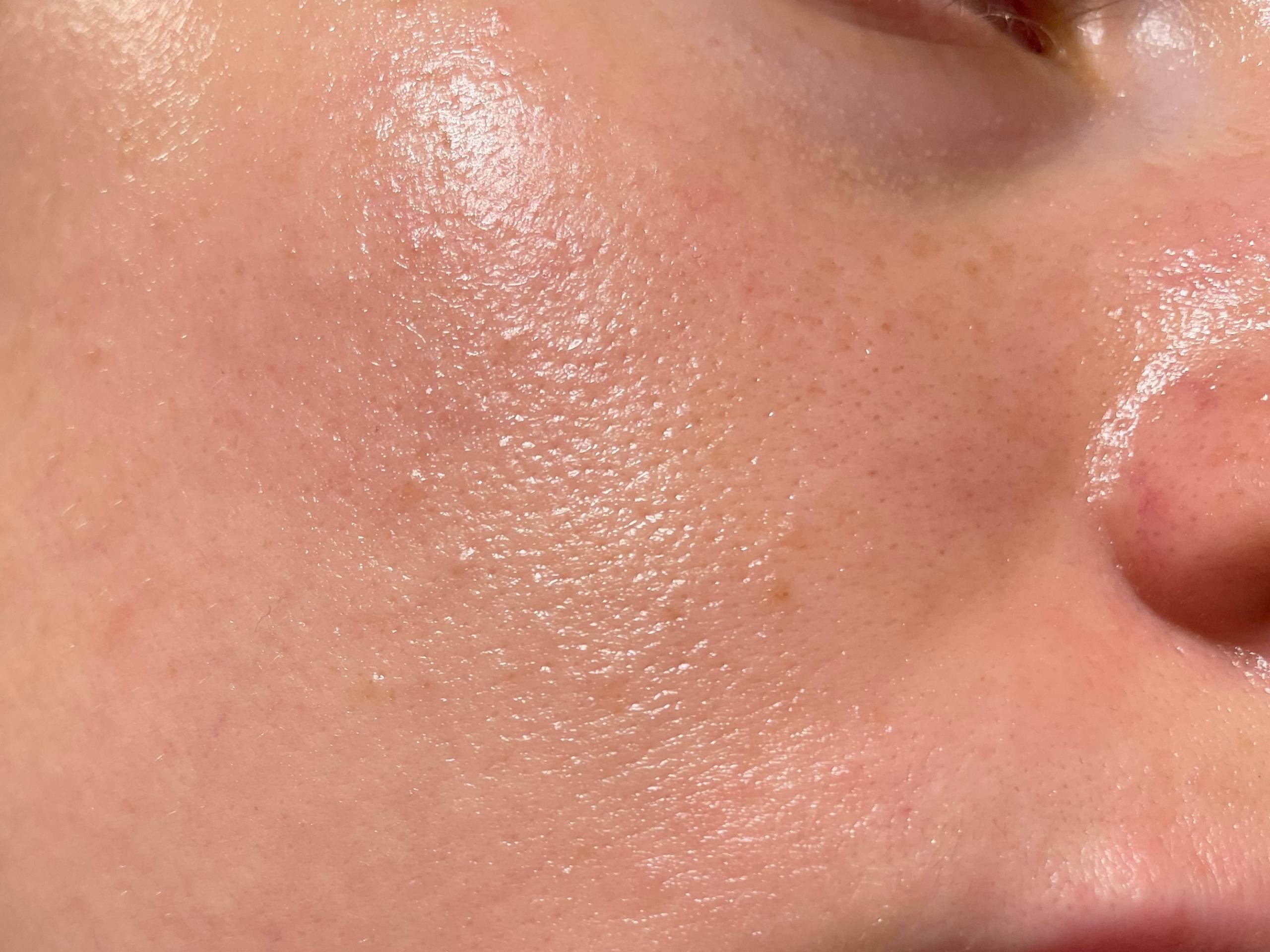So what to do about oily skin? An important first step is to cleanse your skin twice a day to remove sebum and flakes. For cleansing, you should use water and mild, pH-neutral products that are suitable for oily skin – such as a cleansing gel. Oil-based products are unsuitable. Also avoid using cleansing wipes that only rub sebum and dirt particles into your face.
If you are prone to skin blemishes, additives such as salicylic acid, which have a mild desquamative and anti-inflammatory effect, can be useful.
However, you should not degrease your skin too aggressively, for example by using facial toner with a high alcohol content. This may get rid of the oily shine in the short term, but your skin may become even more oily as a reaction. If your skin feels tight or red after washing, this may indicate that the product is too aggressive.






